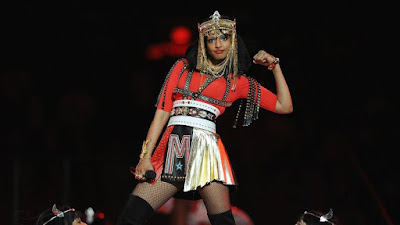Directed by her former St Martins College classmate, Matangi Maya M.I.A digs into the outspoken pop star's personal history, from early beginnings in Sri Lanka to arriving back in the UK in the early 90s as a refugee, and finding herself through music.
With its VHS footage of her dancing in her teenage bedroom, it's almost too easy to say this film's early scenes share a lot of the DNA of Asif Kapadia's Amy, where Maya discovers herself and her western identity through a love of music, and also of recording herself. Originally planning on having a career as a filmmaker, this documentary is composed of the hours of footage Maya recorded in her teens and twenties, handed over to director Steve Loveridge to compose this montage of her life. It's in this footage where she reveals many surprising points about her life, including the mind boggling involvement of Justine Frischmann from Elastica in shaping her early career as a visual artist. It's also clear from the footage that 16 year old Maya was destined for two things, to be a star and to be an activist.
The film takes all of these pivotal moments in Maya's life and remixes them, for example following her album of the year award win in the early 2010s is followed by a jump back to her travels to Sri Lanka in 2001. It hammers home the context of how far Maya came and the things she saw that sculpted her career as a bad girl pop star and activist. There's a powerful political tone to the film, with the troubling treatment of Maya by the mainstream American press in a time of rising right-wing ideologies, accusing her of supporting terrorism and hounding her out of America after she 'flipped the bird' on live TV to millions.
If there's anything outrightly negative to say about the film, it's that it's a few years too late to carry the cultural relevance it wants. It would unfair to imply that Maya carries no cultural cache, as that simply isn't the case; but she is not the cause celebre she once was and the film's urgent social and political commentary may arrive somewhat muted by missing out on M.I.A's huge wave of popularity. Hopefully this doc will re-establish her as a vital act, as this proves above almost anything that the strong willed and ferocious Maya/M.I.A is the kind of pop star the world needs.
Verdict
4/5




No comments:
Post a Comment